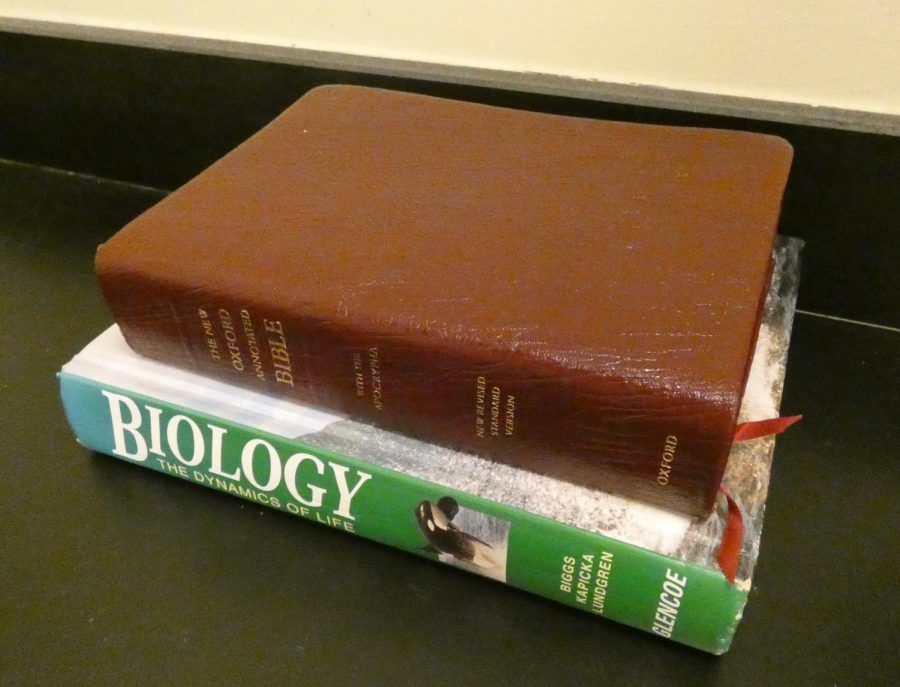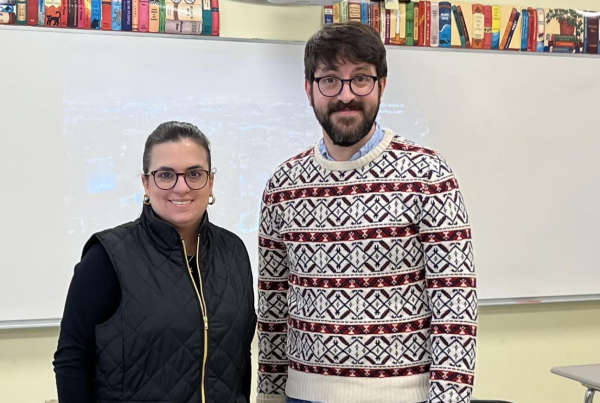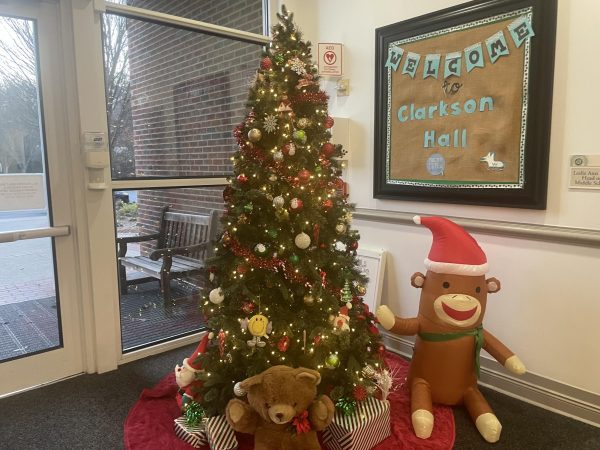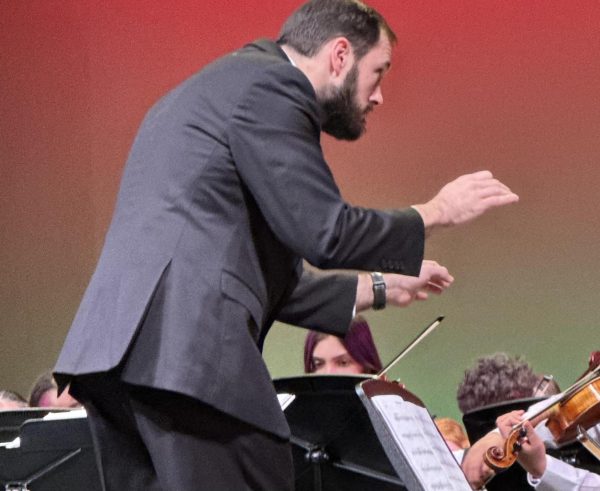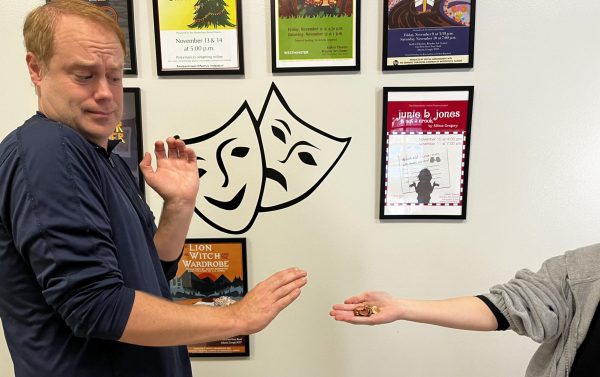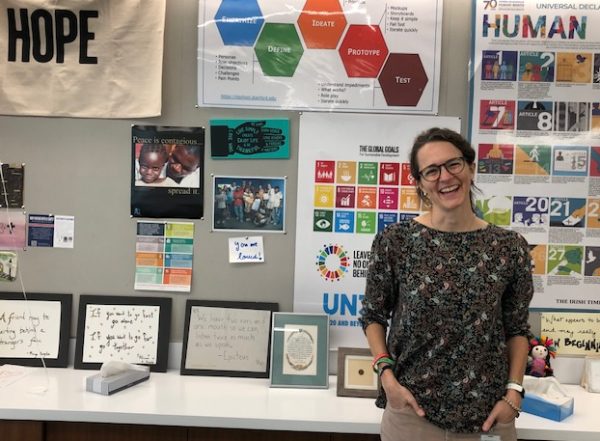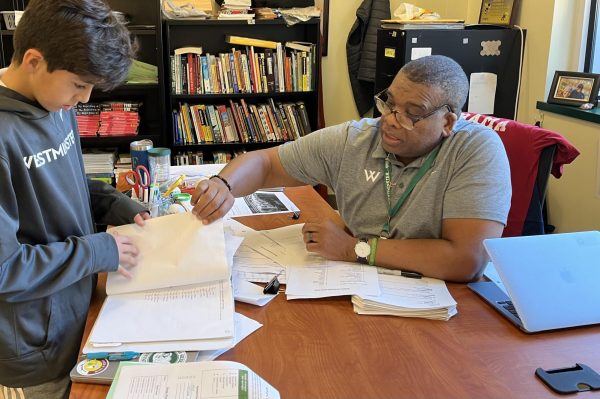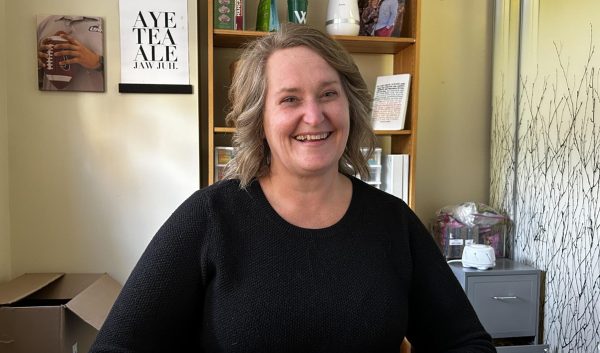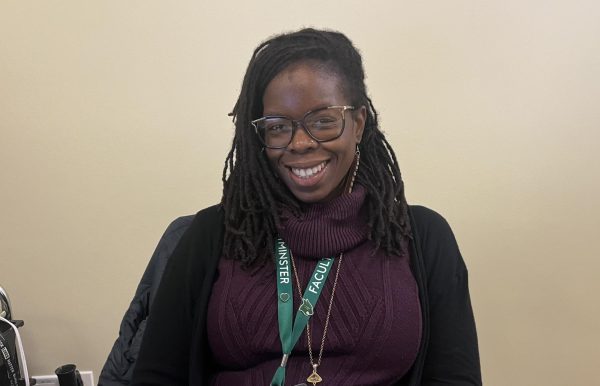In Depth: Why Do 7th Graders Take Both Bible and Biology?
Each year in the Middle School, seventh-grade students take a semester of Human Biology and a semester of Bible. Seventh grade is the only grade that has these classes, and they last only one semester each. The courses aim to give students an overview of the Bible and five of the central body systems, but some controversy exists around them due to their opposing points of view.
Reverend Tina McCormick, Middle School Chaplain and 7th grade Bible teacher, explains how Bible class reflects the school’s identity. “We want to reflect our Christian Mission Statement through a class that every student takes,” she says. “The Christian Mission says that we embrace our identity and are not embarrassed by it.”
These classes aim to cover topics related to civil discourse while also gaining foundational knowledge about the Bible. Civil discourse is, according to Wikipedia, the “engagement in discourse, or conversation, intended to enhance understanding.” It is closely related to freedom of speech. In an environment that practices civil discourse, citizens are expected to listen to the claims of others and offer ideas that are helpful and inspiring.
McCormick also says that the class is not solely geared towards Christian students and that it teaches all students morals and lessons. “I want to engage non-Christian students; I want them to feel a part of the class,” says McCormick. “I think it engages them because just like when you’re in English, and you’re reading a book, you’ve got main characters, and you’ve got lessons. You have morals coming out of everything you read.”
According to McCormick, the class aims not to stress the idea of Christianity, but to teach students valuable life lessons such as how to make good choices, how to show respect, and how to find connections between beliefs. These lessons help students become successful, build lasting friendships, and prepare for Upper School Bible classes.
In Bible class, students also learn how to have respectful disputes and how to respect others’ spiritual identities. “One of the biggest things is how to have respectful conversations,” says McCormick. “Respectful disagreements, to see connections between your beliefs and someone else’s. What someone else practices and what you do. Also, to have some kind of identity around spirituality.”
Additionally, Bible classes provide an overview of the Bible as literature that steers away from the religious aspect. It has literary value, just like allegories or books students read in English, and students look further into these qualities in Bible class. McCormick believes that it is important for students to learn about world religions. “In order to be inclusive of other religions, we have to know these religions and learn about them,” she says. To learn about other faiths, mid-way through the semester, students complete a project that focuses on world religions. After receiving a religion to research, they write a script and create an image-heavy slideshow to present to the class.
In stark contrast to Bible class, 7th-grade students gain another point of view on science and religion through a semester-long Human Biology class. Teacher Perry Williams explains that the material covered in seventh grade is very limited. “It’s really difficult to give students a broad picture of how the human body works in only one semester,” he says. “If we had a full year, I could go through those topics, and it would make sense for them.” Williams also believes that Biology and Bible classes undoubtedly offer students a change in material that gives them multiple perspectives.
McCormick agrees that the classes offer contrast, but she sees similarities as well. “They’re both really talking about the same things,” she says. “Christianity talks about how it all happened in the sense of who did it. Who was behind it all? Science is talking about the how,” she says. “This is how our bodies came to be, this is how our bodies work. And the Bible talks about who came up with the idea. And they don’t have to be two separate things, I think they can merge.”
But what do students think about the courses? 7th grader Claire Lahiji believes that Westminster does a good job of including students from all religions and backgrounds. “I think they do well on that because I think they are inclusive of every religion.” She likes Human Biology and enjoys the material so far. She also believes that it offers good contrast to Bible class.
Not all students are the same. As a Jewish student, 8th grader Jackie Golden felt a little strange in Bible class, but she enjoyed learning new things. “I am Jewish. Bible class was a little strange at first, but it was fun to learn about other religions,” she says. “I think Westminster is inclusive when it comes to religion. It offers affinity groups and we learn about other religions in Bible class.” Overall, Biology and Bible classes offer students multiple views on religion and stark contrast between science and the Bible.

